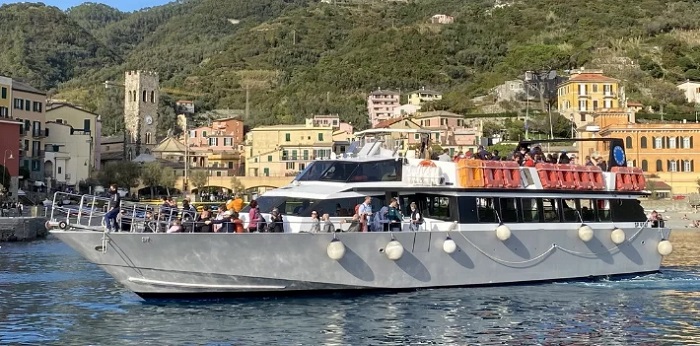Across the world, boats are more than just a way to move from one place to another—they are an expression of culture, tradition, and lifestyle. From fishing villages that rely on small canoes to luxurious yachts that symbolize modern leisure, the way people travel by boat reflects their history and environment.
For anyone interested in global boating traditions, it’s fascinating to see both the similarities and differences in how societies use the water. Yet whether you’re exploring rivers in Asia, islands in the Mediterranean, or lakes in North America, one thing remains the same: preparation and equipment are essential. Even something as practical as Trailer Winches plays a crucial role in supporting boat travel, ensuring vessels can be launched and retrieved safely across cultures.
Boats as cultural lifelines
In many coastal and river-based communities, boats are not simply leisure craft but essential lifelines. In the Mekong Delta of Vietnam, for example, families live and work on houseboats, using waterways as their main transport routes. In the Pacific Islands, traditional outrigger canoes remain symbols of identity and heritage, linking generations through craftsmanship and navigation skills.
These examples show that boats are deeply tied to culture, shaping food, trade, and even spirituality. For some communities, traveling by boat is not just a choice but a necessity for survival.
Leisure boating in the West
In Europe and North America, boating has evolved beyond necessity into recreation. From weekend sailing trips to luxury cruising, the focus is often on relaxation and discovery. Countries like Greece and Croatia have turned boating into a cornerstone of tourism, offering travelers the chance to explore hidden bays and island villages.
Yet even here, practicality is important. Many recreational boaters rely on trailers to transport their vessels between home and water. Reliable Trailer Winches make launching and retrieving boats easier and safer, reducing strain on both the equipment and the people handling it.
Fishing traditions around the globe
Fishing has been central to boat use for centuries, and it remains a cultural anchor in many countries. In Japan, small wooden fishing boats are still common, often passed down through families. In Scandinavia, coastal communities have long depended on boats for cod and herring, shaping both cuisine and economy.
Even in these traditional settings, modern equipment supports daily life. Trailers and winches are frequently used to store boats ashore when not in use, protecting them from storms and rough seas. Trailer Winches are simple but vital tools that connect cultural heritage with modern safety.
Sailing as sport and prestige
Sailing has also grown into a competitive sport and status symbol. In places like New Zealand, sailing is part of national pride, with world-class races drawing global attention. In Monaco, glamorous yacht culture reflects wealth and exclusivity, where boat travel is more about lifestyle than transportation.
But whether it’s a small sailboat or a luxury yacht, boats must be cared for. Proper launching, docking, and storage equipment ensures these prized vessels remain in top condition. This is where gear such as Trailer Winches shows its universal value—helping both everyday boaters and elite sailors handle their boats effectively.
Boats in developing regions
In many developing countries, boats still represent opportunity and access. On the Amazon River, they are the primary means of reaching remote villages. In parts of Africa, ferries and wooden boats connect communities separated by large lakes or rivers.
Here, boat culture is less about leisure and more about practicality. Safety and efficiency are key, with equipment making the difference between smooth operations and constant challenges. Even basic tools like Trailer Winches play a part in making water travel more accessible and sustainable.
The shared bond of water travel
Despite cultural differences, there is a shared bond among those who travel by boat. The feeling of moving across water—whether for work, leisure, or tradition—creates a universal connection. Stories of fishermen in Sri Lanka, sailors in the Mediterranean, or recreational boaters in the Great Lakes all reflect humanity’s enduring relationship with the sea and rivers.
This connection also highlights shared responsibilities. Boaters everywhere face similar concerns: safety, maintenance, and environmental respect. Using proper equipment ensures not only smoother operations but also protection for both people and boats.
Respecting the environment
No matter the culture, responsible boating requires respect for the environment. From coral reefs in the Pacific to lakes in Europe, ecosystems are delicate and easily damaged by careless practices. Minimizing fuel use, reducing waste, and following local regulations preserve waters for future generations.
Practical equipment also plays a role in sustainability. For example, using Trailer Winches to safely haul boats out of the water protects hulls from damage, extending their lifespan and reducing waste from premature repairs or replacements.
Lessons for new boaters
For those just entering the boating world, looking at global traditions offers valuable lessons. From the patience of Pacific navigators to the efficiency of Scandinavian fishers, each culture teaches something about adaptability, respect for nature, and resourcefulness.
Modern boaters can blend these lessons with reliable tools. Equipping trailers with strong winches, ensuring safety gear is onboard, and maintaining vessels properly are all ways of honoring this shared heritage while enjoying the freedom of the water.
Conclusion
Boating is far more than a means of transportation—it’s a reflection of culture, history, and lifestyle across the globe. From ancient traditions to modern recreation, boats continue to shape the way people live and travel.
Yet across all differences, one truth remains: preparation is key. Equipment like Trailer Winches ensures that boats can be handled safely, whether they’re humble fishing canoes or gleaming yachts. By respecting cultural heritage, practicing safety, and embracing responsible boating, travelers everywhere can share in the universal joy of moving across the water.










